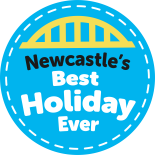Key

Offers free childcare
Part of our local offer
Best Holiday Ever
Free Service
Can't find what you're looking for? Try using quotes.
The Newcastle Community Team for Learning Disabilities is based at Benton House in Newcastle.
The Adult team provides specialist assessment and treatment to people aged 18 years and over with a learning disability and additional health needs, where the person’s needs are complex and require an integrated approach to care and treatment that cannot be met through mainstream services.

Outreach clinic to provide people with a learning disability who have offended or show offending type behaviour(s), and those involved in caring for them the opportunity to seek advice and support on managing day to day forensic issues.
Areas covered: Cumbria, Sunderland and Newcastle
How to get referred:
Referrals must be made through local community nursing teams for each locality.

The team will work with children/young people between the ages of 4-18 with a learning disability and or Autism Spectrum Disorder where their behaviour that challenges occurs as a result of the young person having limited abilities to communicate distress, and get their needs met in other more adaptive ways.
How to refer:
All referrals must come from a Community CYPS team; it is essential that a care co-ordinator is identified. Consultation clinics are held monthly in each locality where potential referrals can be taken to be discussed.

The Secure Outreach Transition Team (SOTT), provides assessment, intervention, treatment, management and supervision for service users with a learning disability and/or autism spectrum disorder who are:
• Currently in secure care
• In the community following discharge from a period of secure care
• In the community having been referred due to offences or offending behaviour that represents a risk to the general public and who potentially may require admission to secure care.

We are one of the UK’s leading providers of mental health services who work both privately and with the NHS to help people and families experiencing mental and emotional difficulties to get better.
Get professional support from the UK's leading mental health, autism, and ADHD service.

Easy Health has over 390 health guides with pictures and simple words. These guides help people who find reading hard to understand health information better. It can help people with learning disabilities.

GriffinOT helps children to achieve their full potential by equipping the adults around them with the tools they need to help. This includes supporting educators, parents, and other professionals.

We are Nordoff Robbins Music Therapy Charity!
As the UK’s largest music therapy charity, we use music to enrich the lives of people with life-limiting illness, disabilities or feelings of isolation.
There are one-to-one music lessons delivered by music therapists. This is suited for people with autism or learning difficulties. Click here to learn more and to apply: Accessible music learning - Nordoff and Robbins.
This service is not provided by the NHS.

Disabled Children’s Register
By law we are required to keep a Disabled Children’s Register. We use it to help us improve services now and in the future.
By being on the register you will be kept informed of what services are available and how you can get involved if you want to. Joining the register is voluntary but if you register your child we will:

What is Makaton?
Makaton is a unique language programme that uses symbols, signs and speech to enable people to communicate.
It supports the development of essential communication skills such as:
- Attention and Listening
- Comprehension
- Memory
- Recall and Organisation of Language
- Expression.
It is designed to support spoken language and the signs and symbols are used with speech, in spoken word order.

